Do or die time for Katie Britt, BCA members and Richard Shelby in CD 1 race
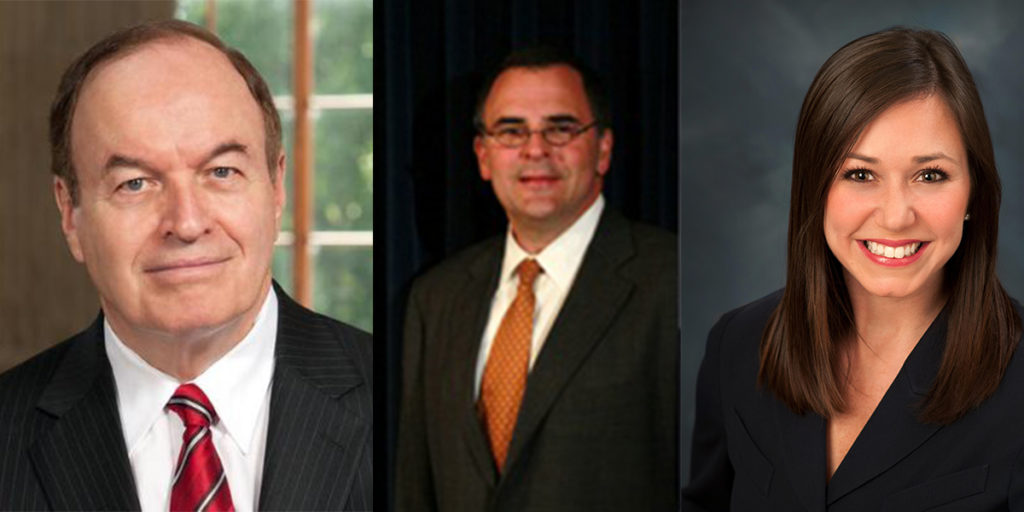
The congressional race down in Mobile and the southern part of the state, district one, is about much more than just the names on the ballot. Much, much more. Let me explain why. There are several other factors at play. Let me tell you about 3 of them. One is will the voters allow as DC based-group come in and tell them who to vote for? Will they let Club For Growth outright lie to them? Make no mistake that’s what the Club is doing when they say Bill Hightower is the most conservative in the race because he’s not.* The Club can be and often is swayed by consultants and power players who want their guy to win even if that means the right guy loses and that’s where they are in this race. Will voters of AL 01 let Club pick their next congressman? They shouldn’t. The Club isn’t most important outside player in this race though. Another major player is the business community and more specifically their lobby the Business Coucil of Alabama. The second factor is one of loyalty and respect. Someone should throw up a flare in the State House (not literally, lest I lose my press credentials and be banned) but legislators there, those who just got back to Montgomery need to be paying very close attention to what happens to Pringle in this race. Because this is a defining moment for the business community, the Business Council of Alabama and Katie Britt. This is their race to lose. This is their shot to miss. This is egg on their faces if they don’t come through. Will they or won’t they show lawmakers who go out on the limb for jobs and the economy the same loyalty and respect when they need it? Let me be clear about what has happened: The best candidate, the most conservative candidate, the right candidate to go to D.C., Chris Pringle took a hard vote for the economic health and wellbeing of Mobile and district one (if not the whole state) and now he’s about to be the case study for the effectivness of the business community. Can business leaders, will business leaders step it up and put their money on the line to tell voters why Pringle’s vote mattered? Will they continue their deafining silence or will they convence them that he did the right thing. All the voters are hearing now is that Pringle betrayed them with his gas tax vote and it’s not that simple and it’s not true. Lawmakers around the state are all about to learn the answer to the question, “If I stand with Alabama’s business community will they stand with me or will disappear when I need them the most?” Will they do the bare minimum or will they go all in? Last year Katie Britt, Mark Crosswhite and all the members of the BCA pushed and proded and had their members push and prod legislators to pass the gas tax bill. Will they provide the calvary that is needed today to help members explain that vote? Will they match the financial investment others are making to get right the wrong message about it or will they watch as Pringle falls on a sword of the BCA’s creation? If they do not fix this. If they do not go all in. If they do the bare minimum of lip service or bullsh*t endorsements that mean nothing without money behind them, big money in this case, backing them up, no legislator can or should trust them again. Lest lawmakers one day find themselves on the wrong side of a BCA sword too. Last year it was the gas tax but what will they ask for this year or next or the one after? The final player in this race can’t be left out. It wasn’t just the BCA either who pushed for the Mobile legislative delegations support. Richard Shelby was instrumental in getting the gas tax passed as he used it for a vehicle to strengthen the economic viability of the Port of Mobile by increasing its capacity. Pringle said it himself about Shelby, in a news story that described the benefits the tax would have on the port, “This is his (Shelby’s) No. 1 priority in getting that ship channel widened and deepened,” Pringle said. The tax bill, also named the “Rebuild Alabama infrastructure package” included language that said funds from the tax increase would be used for the state match for the Alabama State Port Authority’s $400 million ship channel project. It is worth noting that this huge Port project, with lifelong implications of jobs and growth for the state was the only specifically named project in Rebuild Alabama Act that wasn’t a road or bridge. “When that wound up in the bill, there was no way to vote against it,” Pringle said. Pringle was right. He did what was best for Mobile So Shelby got his number one priority and now it’s his turn to help someone who helped him. Pringle didn’t just take the vote he stood by it and explained it. Don’t get me wrong, I wish he hadn’t made the vote and he’d be running away with this race if he hadn’t but I understand why he did and if the business community were to go all-in in this race they way they should voters may understand a little better too. Without that vote his record would have made him a a shoe in for Congress. His record reflects a rare “true believer.” Pringle is as big a small government champion as any tea party candidate I ever met. His intentions are as pure as they come and the gas tax vote has all but ruined his otherwise lifelong record. A record that has been largely overlooked by his opponents who have painted his one vote as a defining one. In a story about the gas tax vote Alabama State Port Authority CEO Jimmy Lyons said,
Winners, losers and the joker of the tax increase fight

Wow, are there some big winners and big losers this week in the gas tax fight. I’m going to look at this objectively, and call myself a loser. We’ll get to that in a minute. Winner #1: I’d be remiss not to point out that the big winner in securing the gas tax was the new and improved Business Council of Alabama. Much to the chagrin of the people who wished it dead during the Bill Canary years. The BCA is now back and stronger than ever under the leadership of Katie Boyd Britt. It was with the support of Katie and the BCA board that the gas tax fast-tracked through the state legislature during special session. BCA, Katie, y’all are winner #1. Winner #2: Those who forced change at the BCA and hired Katie Britt. Make no mistake Canary would have loved to hold onto power if not for the public departure of Alabama’s biggest businesses from the council to force change. Those same individuals had the wherewithal to hire Britt away from Senator Richard Shelby. Here’s looking at BCA Chairman Mark Crosswhite. Undoubtedly, Crosswhite drove this train and put Britt at the control. Winner #3: Senator Richard Shelby. He made his position on this bill known and few people wanted to face his wrath if they went against his will. Certainly no one from Mobile stood a chance as a “no” vote. Love or hate that level of influence, it worked well for him and his priority: the Port of Mobile. Winner #4: Anybody associated with roads and roadbuilding. That includes anybody who contracts with ALDOT, the cities or the counties. Yay! You guys are getting more money. Winner #5: The cities and the counties, who now have more money to play with in their budgets. What was the price of these additional funds? Not speaking up for Alabama taxpayers and pushing an offset for the gas tax or working against it. Loser #1: Me! Okay well not just me, but rather those few of us who were adamantly opposed to the gas tax, but could not get their voices heard or amplified enough to stop it. Too little, too late. Too few of us speaking out. This goes to prove just how important it is for conservatives to regroup before the next election cycle (more on that coming soon). Loser #2: The taxpayers. We need to do more, and do better. Income taxes, and high sales taxes. We need to work together to offset this gas tax. Loser #3: Not who you’d expect, but I’m going to say Gov. Kay Ivey. Why? Because this is Kay’s legacy. Her legacy is her first act as officially being elected governor, rather than assuming the position post-scandal/resignation, is raising taxes. Way to disappoint a conservative constituency who had high hopes for you coming in a a red state governor. Jokes on you: Everyone who thought Walt Maddox‘s campaign was too liberal for the state: medicaid expansion, gas tax, and lottery? Rumor is we’re getting all three as part of this deal.
Did your state senator vote for or against the gas tax? Here’s the full list
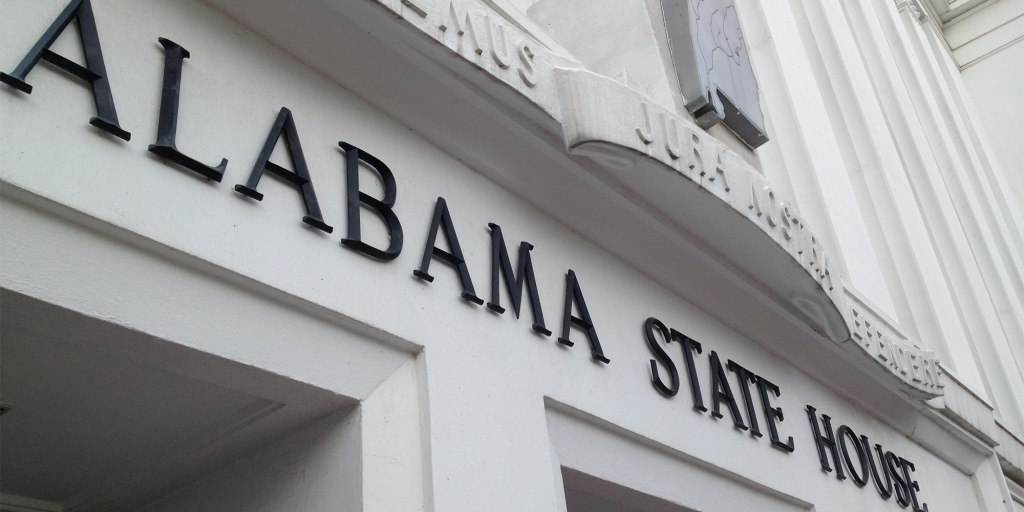
After weeklong special session, the Alabama State Senate voted 28-6 in favor of Gov. Kay Ivey‘s plan to raise the state’s gas tax by 10 cents as a means to fund infrastructure improvements on Tuesday. Ivey signed the bill into law Tuesday afternoon. Here’s the full list of who voted for and against the gas tax bill: Voted in favor of the gas tax Greg Albritton Gerald Allen Billy Beasley David Burkette Tom Butler Clyde Chambliss Donnie Chesteen Linda Coleman-Madison Chris Elliot Sam Givhan Garlan Gudger Jim Holley Andrew Jones Steve Livingston Del Marsh Tim Melson Arthur Orr Randy Price Greg Reed Sanders-Fortier Clay Scofield David Sessions Bobby Singleton Rodger Smitherman J.T. Waggoner Cam Ward Tom Whatley Jack Williams Voted against the gas tax Will Barfoot Vivian Davis Figures Jim McClendon Dan Roberts Shay Shelnutt Larry Stutts No vote Priscilla Dunn
Kay Ivey signs gas tax in law, first increase set for Sept. 1
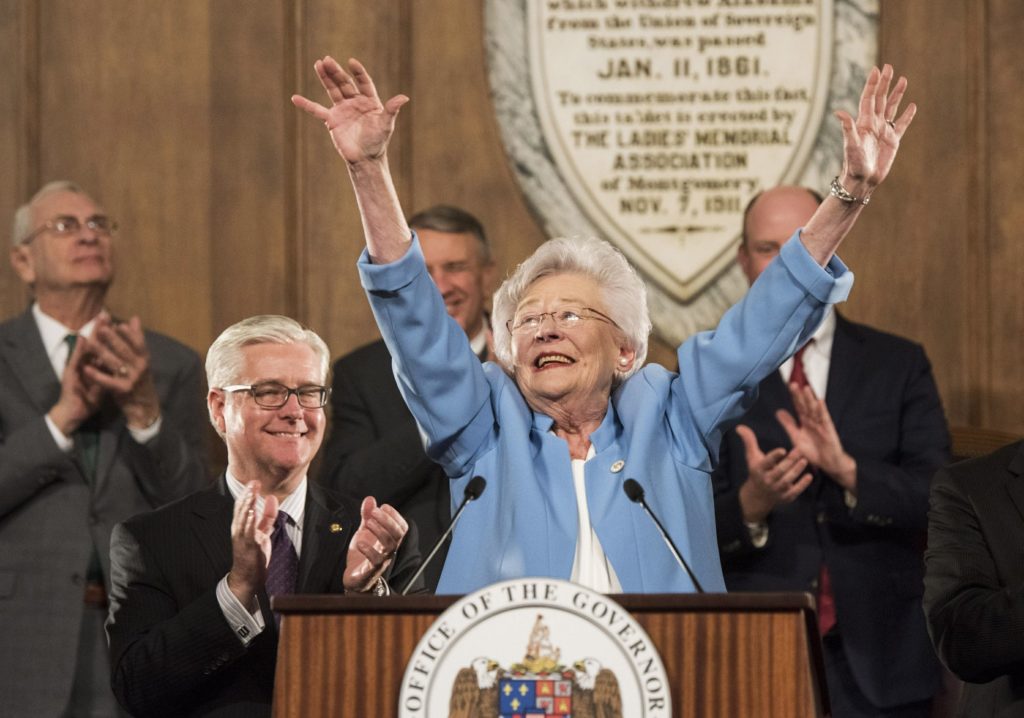
Alabama Gov. Kay Ivey on Tuesday signed a 10-cent-a-gallon gas tax increase into law. She was joined by a bipartisan group of legislators at the bill signing, including bill sponsors Rep. Bill Poole and Sen. Clyde Chambliss. Ivey’s signature comes roughly two-hours after the Alabama Senate approved the House-passed version of the bill, 28-6. The bill was fast-tracked for approval in a special session that Ivey called last week. Ivey did this to lowers the threshold for approval of the legislation. In the regular session, bills connected with the state budget must pass with a three-fifths majority. With 105 members of the State House of Representatives, only 53 members needed to vote in support of it. In the 35 member Senate, 18 was all that was required to approve the bill. It’s all in the details The state currently imposes a flat excise tax of 18 cents-per-gallon on gas and 19 cents-per-gallon on diesel, without adjusting for inflation and other construction and maintenance costs. This combined fuel tax revenue generates 80 percent of Alabama’s transportation funding. The plan’s 10-cent increase will be phased in over the next three years: up 6 cents effective Sept. 1, 2019, up another 2 cents, effective Oct. 1, 2020, and up another 2 cents, effective Oct. 1, 2021. The bill is expected to cost the average Alabama driver roughly $55 a year, or $4.58 a month. That’s according to the Alabama Transportation Institute based on 12,000 annual miles and 22MPG. New revenue generated by the increase will be dispersed between state, county, and municipal governments in Alabama. According to Ivey, these funds are to be used for transportation infrastructure improvement, preservation and maintenance projects. A separate portion of the revenues will go to pay a bond to be issued to finance improvements to the ship channel providing access to the facilities of the Alabama State Docks. The state’s gasoline tax was last increased in 1992.
Alabama Senate overwhelmingly approves Kay Ivey’s 10-cent gas tax hike
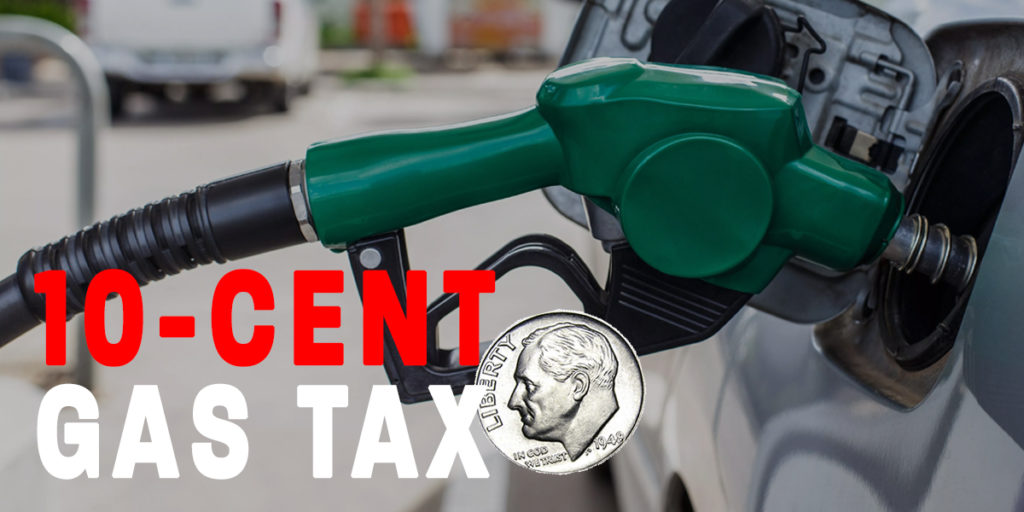
Gov. Kay Ivey‘s proposed 10-cent per gallon gas tax increase flew through the Alabama Senate this week on the legislative fast track. The full chamber approved the House-passed version of the Tuesday afternoon, 28-6. Anniston-Republican, Senate President Pro Tempore Del Marsh released the following statement following the approval of the legislation Over the last ten years we have seen unprecedented growth in Alabama. Median income is up 20%, unemployment is at an all-time low. We have dramatically reduced the size of state government, we have over 6,000 fewer state employees today than we did eight years ago which equates to a 15% reduction. However, in this time, our infrastructure has lagged behind and every one agreed that something needed to be done. This bill was passed the correct way. Over the past year my office alone has held over 30 open meetings with legislators, and all interested stakeholders. All voices were heard and nothing was rushed. I want to thank the body for adopting strict oversight and accountability measures. Because of this, there is no doubt that going forward the money which is supposed to be used for infrastructure will be used for road, bridge and port improvements. As a fiscal conservative, it would have been impossible to support any type of revenue measure in the infrastructure package without the oversight and accountability laid out in this bill. I thank the Senate for their support, Sen. Chambliss and Rep. Poole for their leadership on this issue and Governor Ivey for taking this issue head on. This infrastructure package will drive industry in Alabama for years to come and ensure that we continue the strong economic growth that we have enjoyed over the past few years by making sure that we are competitive on the world stage when it comes to recruiting jobs. The plan’s 10-cent increase will be phased in over the next three years: up 6 cents effective Sept. 1, 2019, up another 2 cents, effective October 1, 2020, and up another 2 cents, effective October 1, 2021. It is estimated that it will raise $320 million a year for road construction and maintenance Ivey is expected to sign the bill into law later today, marking the first time the gas tax has been raised since 1992.
Following House rush, Senate leadership hurries to pass gas tax increase
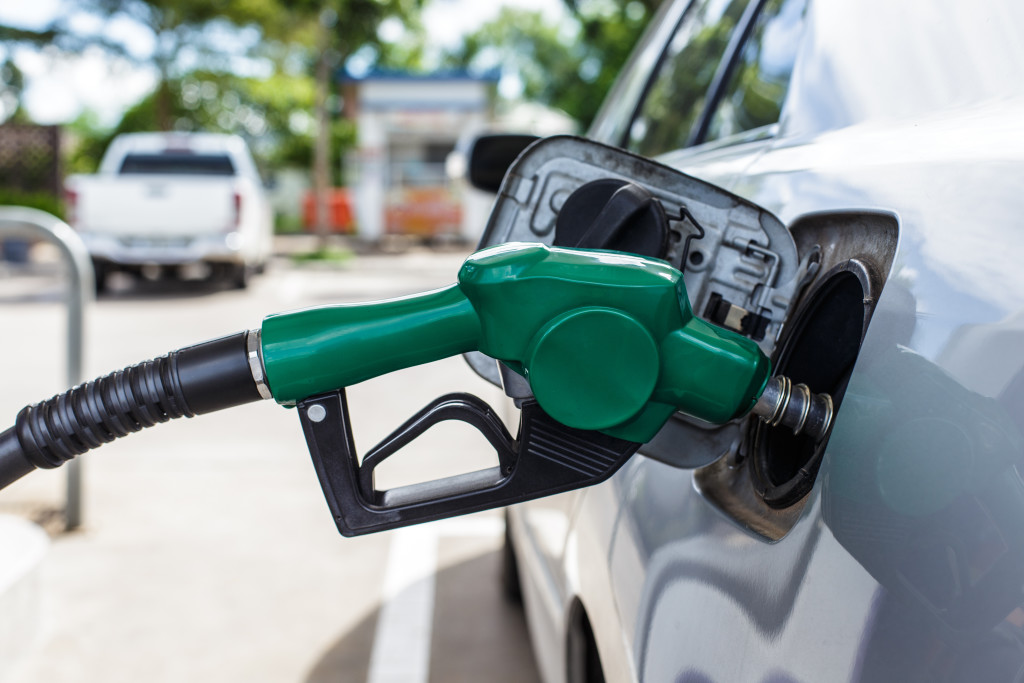
Gov. Kay Ivey‘s proposed 10 cent-per-gallon increase to the state gas tax could move one step closer to reality on Monday. The Alabama Senate Transportation and Energy Committee is poised to consider the House-passed plan later today, meaning the full Senate could consider the plan as early as Tuesday. Fast-tracking the bill The bill, which was fast-tracked in the House and approved on Friday, needed only a simple majority to pass the chamber. That’s because Ivey called the state legislature into a special session to pass the bill, which lowers the threshold for approval. In the regular session, bills connected with the state budget must pass with a three-fifths majority. With 105 members of the State House of Representatives, that means just 53 members need vote in support of it. In the 35 member Senate, 18 votes will be needed to approve the bill. The proposed gas tax plan The state currently imposes a flat excise tax of 18 cents-per-gallon on gas and 19 cents-per-gallon on diesel, without adjusting for inflation and other construction and maintenance costs. This combined fuel tax revenue generates 80 percent of Alabama’s transportation funding. The plan’s 10-cent increase will be phased in over the next three years. New revenue generated by the increase will be dispersed between state, county, and municipal governments in Alabama. According to Ivey, these funds are to be used for transportation infrastructure improvement, preservation and maintenance projects. A separate portion of the revenues will go to pay a bond to be issued to finance improvements to the ship channel providing access to the facilities of the Alabama State Docks. The state’s gasoline tax was last increased in 1992.
‘Rebuild Alabama’ will solidify state’s economic development gains, Greg Canfield says
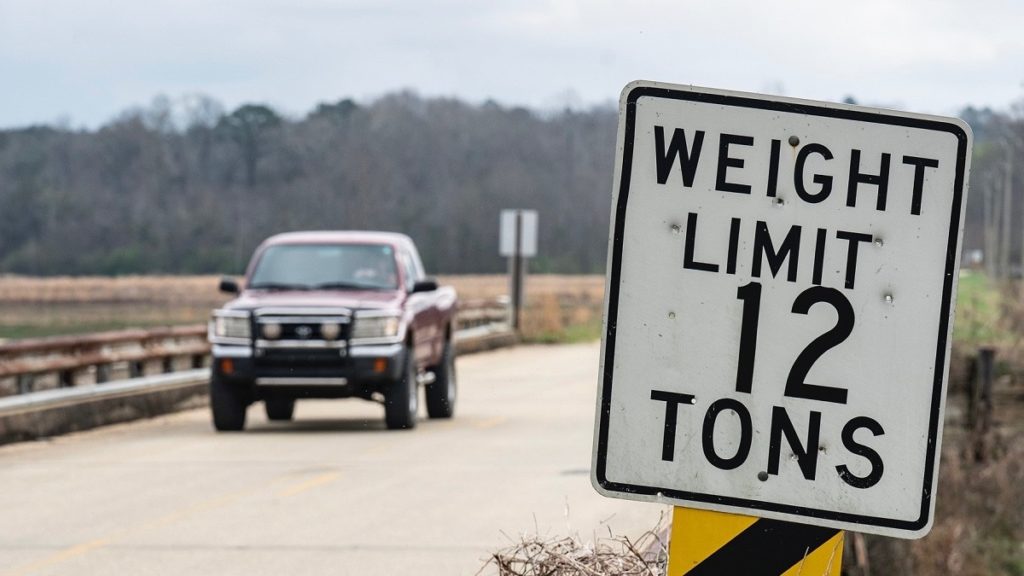
Alabama Commerce Secretary Greg Canfield said infrastructure improvements financed by Gov. Kay Ivey’s “Rebuild Alabama” plan would help the state’s economic development team sustain momentum as it seeks to recruit high-caliber jobs and companies. “I believe we need to focus on infrastructure as a key issue in Alabama at this critical time,” Canfield said. “We have had tremendous success in bringing great companies from around the globe to the state. For these companies to thrive and expand, Alabama needs to have the best roads and bridges it can.” Alabama’s economic development team registered impressive successes in 2018. The year’s biggest prize was a $1.6 billion Mazda-Toyota joint venture assembly plant that will create 4,000 jobs in Huntsville and accelerate growth in the state’s auto industry. “If we want to continue to attract world-class companies and high-paying jobs to Alabama, we need to make an investment in the state’s infrastructure system,” Canfield said. Ivey’s “Rebuild Alabama” plan calls for a 10-cent increase on the state’s fuel tax, rolled in over three years, to generate funding for improvements to the road network and at the Port of Mobile, the state’s only seaport. The governor this week called the Alabama Legislature into a Special Session, which began Wednesday, devoted solely to the infrastructure issue. The fuel tax has not been raised since 1992, even though it is the chief revenue stream for state funding of road repairs and improvements. Experts from the Alabama Transportation Institute at the University of Alabama noted in a January 2019 report that inflation, greater fuel efficiency and rising road construction costs have eroded the purchasing power of the fuel tax over time. Competitive disadvantage Other economic development leaders and business groups from around the state have joined Canfield in supporting the “Rebuild Alabama” plan as an investment in the future. Jim Searcy, executive director of the Economic Development Association of Alabama, said deficiencies in Alabama’s infrastructure system could soon begin to put the state at a disadvantage in the economic development process. “We are falling behind our neighboring states, the ones we most frequently compete with, in addressing our deteriorating infrastructure, and that’s crippling our ability to compete for investment and the jobs that investment creates,” Searcy said. Justice Smyth, the ATI’s outreach director and a former director of corporate development at the Montgomery Area Chamber of Commerce, said Alabama’s business-friendly environment and effective workforce development programs position the state to succeed in economic development. Alabama is not as strong in a third key area: the transportation network. “That’s where Alabama is struggling to stay as competitive as we are with the other aspects,” Smyth said. “Transportation is becoming more and more of a driver.” Revenue generated by Rebuild Alabama would permit the Alabama State Port Authority to make improvements to the ship channel providing access to the facilities at the Alabama State Docks. “Alabama’s port channel needs critical improvements to ensure Alabama industries remain competitive and enjoy transportation cost efficiencies to reach global markets,” said James K. Lyons, director and CEO of the Alabama State Port Authority. “Our port will fall behind competing ports, who are already modernizing their infrastructure, if our port is not deepened and widened.” Alabama Farmers Federation President Jimmy Parnell said the Rebuild Alabama plan would help the state’s agricultural industry and position rural areas for growth. “Poor and inadequate infrastructure is one of the greatest barriers to rural Alabama enjoying the same economic growth as larger cities,” Parnell said. The Business Council of Alabama, the state’s largest business group, also backs the infrastructure improvement plan. “The road to our future must be paved,” BCA President and CEO Katie Boyd Britt said. “Alabama’s transportation system is the backbone of the state’s economy and is crucial to our economic growth, and I commend Governor Ivey for making this a priority of her administration.” This story originally appeared on the Alabama Department of Commerce’s Made in Alabama website. Republished with permission from the Alabama NewsCenter.
Did your state rep vote for or against the gas tax? Here’s the full list
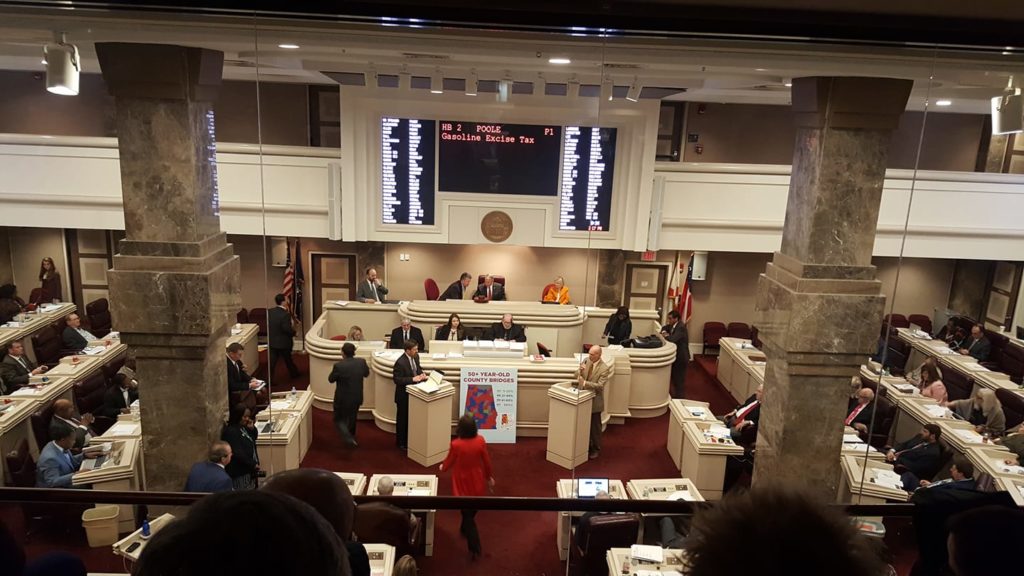
After four-day sprint in special session, the Alabama State House voted 83-20 in favor of Gov. Kay Ivey‘s plan to raise the state’s gas tax by 10 cents as a means to fund infrastructure improvements on Friday. Here’s the full list of who voted for and against H.B. 2, otherwise known as the gas tax bill: Voted in favor of the gas tax Mac McCutcheon Louise Alexander Wes Allen Alan Baker Mike Ball Chris Blackshear Barbara Boyd Napolean Bracy Chip Brown Koven Brown Prince Chestnut Adline Clarke Steve Close Merika Coleman Terri Collins Danny Crawford Anthony Daniels Dickie Drake Barbara Drummond Brett Easterbrook Corley Ellis Chris England Tracy Estes David Faulkner Joe Faust Barry Forte Danny Garrett Victor Gaston Juandalynn Givan Jeremy Gray Lynn Greer Dexter Grimsley Laura Hall Jim Hill Rolanda Hollis Ralph Howard Steve Hurst Reed Ingram Gil Isbell Thomas Jackson Mike Jones Sam Jones Wes Kitchens Kelvin Lawrence Nathaniel Ledbetter Paul Lee Craig Lipscomb Joe Lovvorn Rhett Marques Jimmy Martin Artis McCampbell Thad McClammy Steve McMillan Toshina Morris Becky Nordgren Ed Oliver Phillip Pettus Dimitri Polizos Bill Poole Chris Pringle Neil Rafferty Rex Reynolds Kerry Rich Prouncey Robertson Connie Rowe Howard Sanderford Rod Scott Chris Sells Ginny Shaver Randall Shedd Harry Shiver Matt Simpson Jeff Sorrells Kyle South Shane Stringer Rodney Sullivan Tim Wadsworth Pebblin Warren Andrew Whitt Marie Wilcox Rich Wingo Debbie Wood Randy Wood Voted against the gas tax Jim Carns Will Dismukes Allen Farley Bob Fincher Matt Fridy Tommy Hanes Corey Harbison Mike Holmes Ronald Johnson Jamioe Kiel Arnold Mooney Mary Moore John Rogers Andrew Sorrell Scott Stadthagen David Standridge Allen Treadaway April Weaver David Wheeler Ritchie Whorton Did not vote Kirk Hatcher Parker Moore The measure now moves to the Senate for its consideration.
The House has spoken, votes 83-20 in favor of state gas tax increase
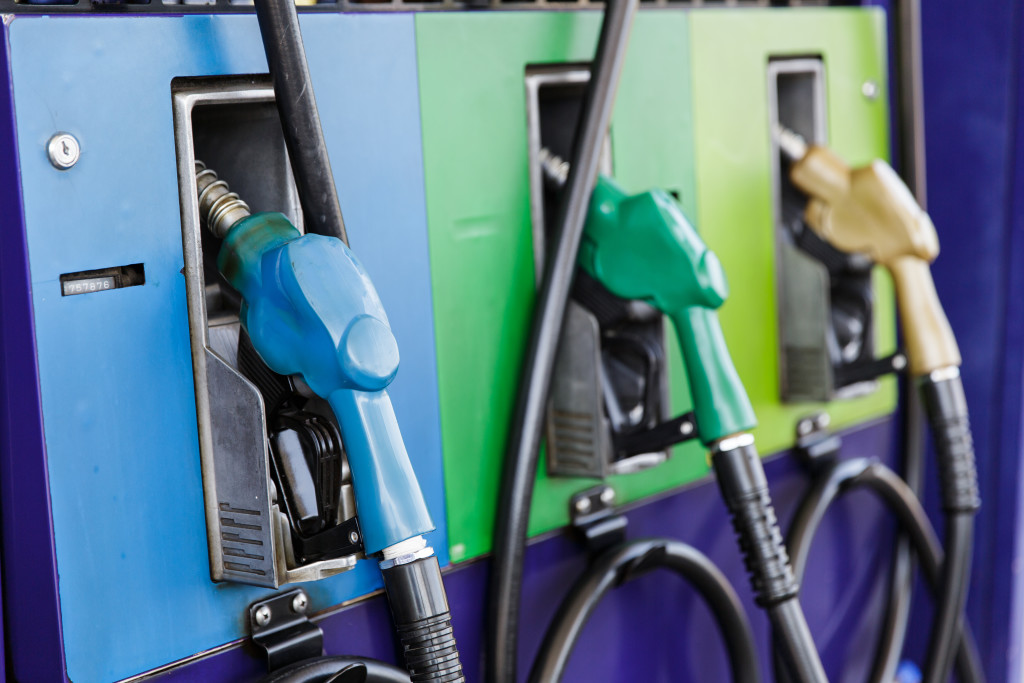
The Alabama House on Friday voted 83-20 in favor of Gov. Kay Ivey‘s plan to raise the state’s gas tax by 10 cents as a means to fund infrastructure improvements. “Every hard-working Alabamian will be impacted by this is the form of safer roads, bus routes, job opportunities, and first responders in moments of disaster or distress,” said Tuscaloosa-Republican, State Rep. Bill Poole, the sponsor of the bill according to the Montgomery-Advertiser. “It will affect my children. It will affect your children, and it will affect all the children in the state.” The 10-cent gas tax increase would be phased in over the next three years. The bill also includes fees for electric and hybrid vehicles. The bill now moves to the Alabama Senate for consideration. The story is still developing. Check back soon.
Bombshell: Kay Ivey video says leadership vetted candidates and only encouraged tax raisers to run
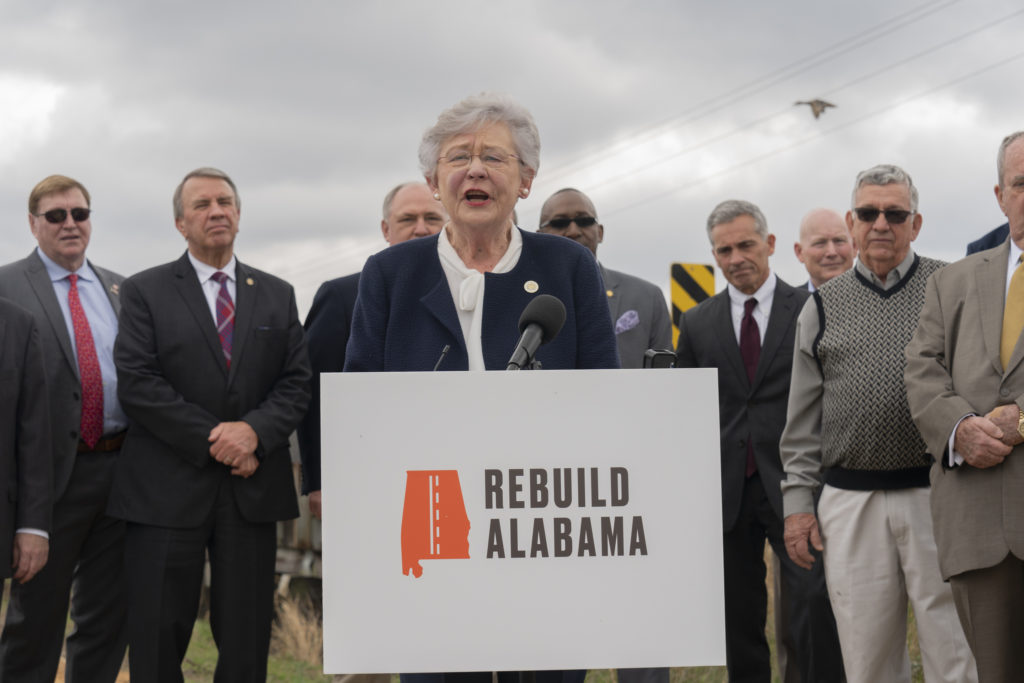
If a picture is worth 1,000 words how many words is a video worth explaining the situation freshmen members of the state legislature are finding themselves in? Without commentary you watch and be the judge. Please note this answer came from an exclusive interview Governor Kay Ivey did with WSFA, which can be found HERE in its entirety. Transcript: Question: I spoke with some Republican lawmakers today, freshman and not freshman. Saying man that they say, they say they have not had a chance to really read the bill and explain to their constituents what’s going on. Some, one even said they feel like it’s being jammed down their throat. What are your thoughts on that? Kay Ivey: Well, all the freshman who ran for the house and senate were indeed briefed on the need for an infrastructure bill well before they were elected and they were vetted by the House and Senate leadership and if they were not for increasing the gas tax for infrastructure they were not encouraged to run. The freshman may be knowing more than they may be telling you…
Moment of truth: fast-tracked gas tax increase vote expected Friday
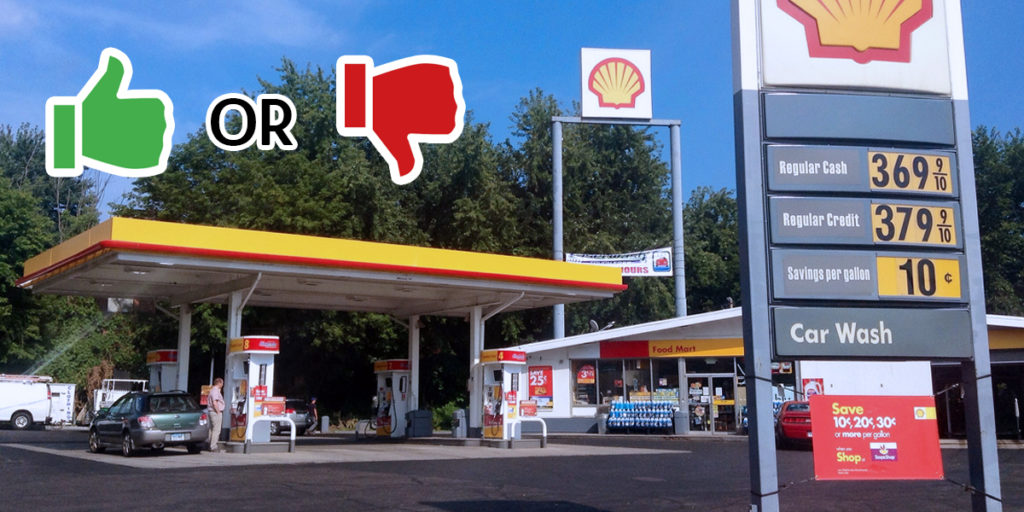
The Alabama House of Representatives is expected to vote on Gov. Kay Ivey‘s proposed 10 cent-per-gallon increase in the state gas tax on Friday. The bill, which has been fast-tracked in the House and was approved by voice-vote in the House Transportation, Utilities and Infrastructure Committee on Thursday, needs only a simple majority to pass the chamber. That’s because Ivey called the state legislature into a special session to pass the bill, which lowers the threshold for approval. In the regular session, bills connected with the state budget must pass with a three-fifths majority. With 105 members of the State House of Representatives, that means just 53 members need vote in support of it. The House is scheduled to debate the bill Friday. House Speaker Mac McCutcheon expects lawmakers will vote on the bill following a lengthy debate. The proposed gas tax plan The state currently imposes a flat excise tax of 18 cents-per-gallon on gas and 19 cents-per-gallon on diesel, without adjusting for inflation and other construction and maintenance costs. This combined fuel tax revenue generates 80 percent of Alabama’s transportation funding. The plan’s 10-cent increase will be phased in over the next three years. New revenue generated by the increase will be dispersed between state, county, and municipal governments in Alabama. According to Ivey, these funds are to be used for transportation infrastructure improvement, preservation and maintenance projects. A separate portion of the revenues will go to pay a bond to be issued to finance improvements to the ship channel providing access to the facilities of the Alabama State Docks. The state’s gasoline tax was last increased in 1992.
Anti-gas tax PAC calls special session ‘governmental malpractice,’ tells legislators to ‘man up’
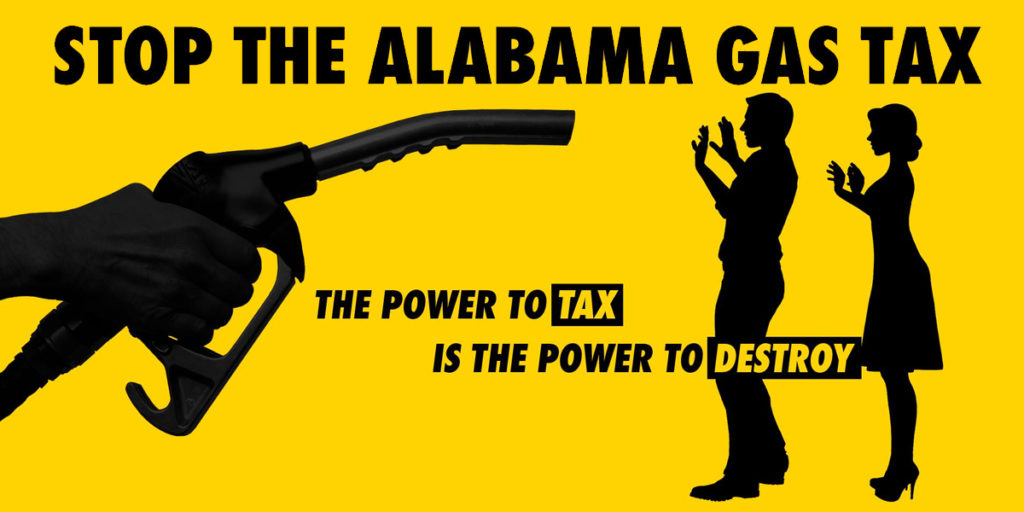
Alabama Gov. Kay Ivey on Tuesday called state lawmakers into an immediate special session focused on her proposed gas tax increase to pay for infrastructure improvements. On Wednesday afternoon, Stop the Alabama Gas Tax PAC said Alabamians should view the special session announcement from Ivey and the Legislature’s cooperation as, “governmental malpractice.” “Montgomery politicians are coming for your wallet and they’re coming fast,” said Ralph Long, Chairman of the Stop the Alabama Gas Tax PAC. “This special session, held at taxpayers’ expense, is a sly circumvention of the regular process so that Montgomery politicians can ram the largest gas-tax increase in state history down the throats of hardworking Alabamians.” Long is referring to the fact that in a special session, legislators need only a simple majority to pass a bill. That means, in the 105 members State House of Representatives, only 53 members need vote in support of it for it to move to the Senate. Stop the Alabama Gas Tax spokesperson Hannah Ford says the Alabama Legislature’s “Rebuild Alabama Act” is better termed the “Re-Tax Alabama Act.” Ford said specifics are lacking. “The primary projects mentioned in the Re-Tax Al-abama Act are port projects in Mobile and ‘electric vehicle charging infrastructure’ projects — a far cry from simple reparation of roads and bridges! Specific decisions about which additional projects to focus on will be left to a committee of bureaucrats.” “This special session to address the Re-Tax Alabama Act is governmental malpractice and must be stopped in its tracks before politicians win and taxpayers lose,” Ford added. Long says the Alabama Legislature has one constitutional duty: to balance the state budgets. He believes the special session side-steps that duty and puts the burden of “financial mismanagement on the backs of Alabama taxpayers.” “Legislators need to man up. Instead of doing the hard work to balance the budgets, they are making this massive tax hike a number one priority and putting the burden of their financial mismanagement on the backs of Alabama taxpayers. It’s unreal,” Long explained. The total cost of Ivey’s proposed gas tax is $55 a year, or $4.58 a month to the average driver, according to the Alabama Transportation Institute based on 12,000 annual miles and 22MPG.

